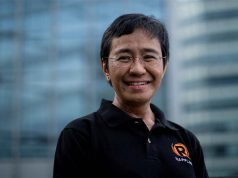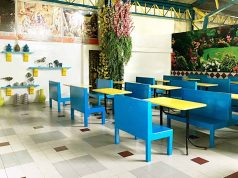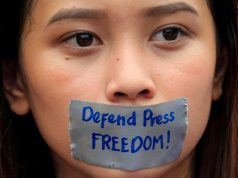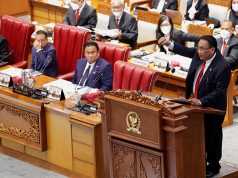MANILA, Philippines — International non-government organization Human Rights Watch (HRW) on Wednesday warned that Malacañang’s move to ban a Rappler reporter and the media outfit’s head from covering the activities of the Office of the President could be a sign of a bigger attack on Philippine media.
“It could portend a broader assault on journalists and news organizations, whose critical watchdog role has magnified the government’s poor human rights record, from extrajudicial killings of thousands of alleged drug dealers and users to conflict-related abuses in the south,” the New York-headquartered HRW said in a statement.
Amid the Duterte administration’s alleged move to further stifle press freedom in the Philippines, HRW urged Filipinos to voice out their support for a free press as the country commemorates the 1986 EDSA uprising that toppled the dictatorial rule of Ferdinand Marcos.
“Filipinos this week celebrate the 32nd anniversary of the 1986 People Power uprising that led to the ouster of Marcos, inspiring the world. They should also take this opportunity to show their support for a free press,” said HRW.
The group said Pia Ranada “is believed to be the first reporter denied access to Malacañang Palace since the dictatorship of President Ferdinand Marcos, who severely curtailed media freedom.”
HRW said the Duterte administration had “renewed its assault on the media by banning Ranada and Rappler CEO Maria Ressa from entering the executive office at Malacañang.
It noted that the ban followed a Senate hearing on a controversial frigate deal, during which Duterte’s special assistant Christopher Lawrence “Bong” Go accused Rappler and the Philippine Daily Inquirer of publishing “fake news,” which both news outlets denied.
“The administration gave no clear reasons for banning…Ranada, from media briefings. The presidential spokesman, Harry Roque, said Ranada could still enter Malacanang, while a senior Malacañang official, Jhopee Avancena, said she could not,” HRW said.
Rappler later reported that Avancena had sent Ranada a text message saying that Duterte himself had ordered her kept out.
HRW further noted that Ranada had been covering the presidential beat as a member of the Malacañang Press Corps and “become known not just for putting tough questions to the President during press briefings, but also for being the target of presidential ire.”
“Ranada and…Ressa, have been vilified by Duterte supporters on social media as part of a seemingly organized campaign against critical journalists,” the organization said.








